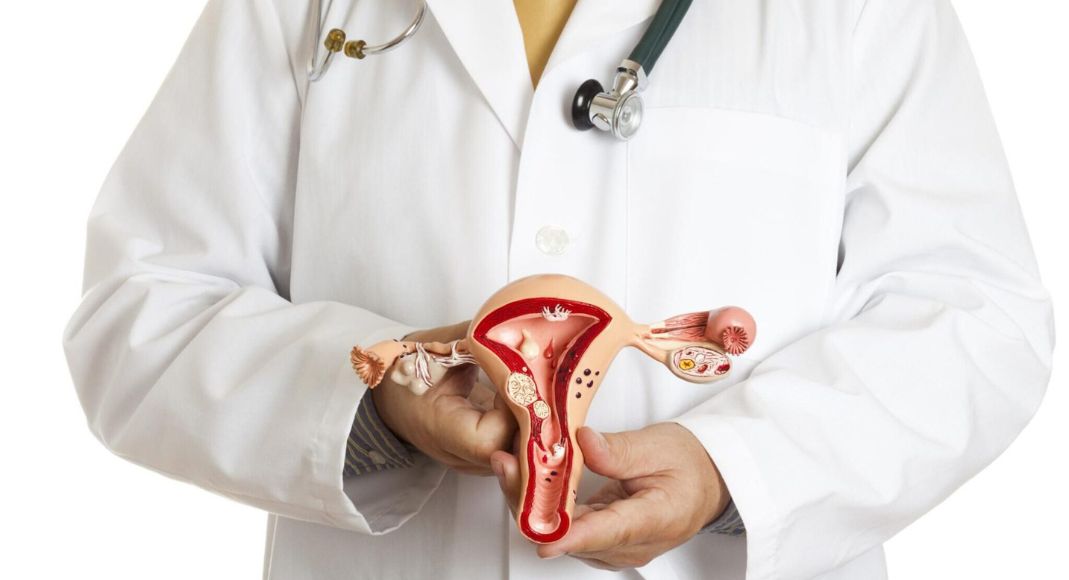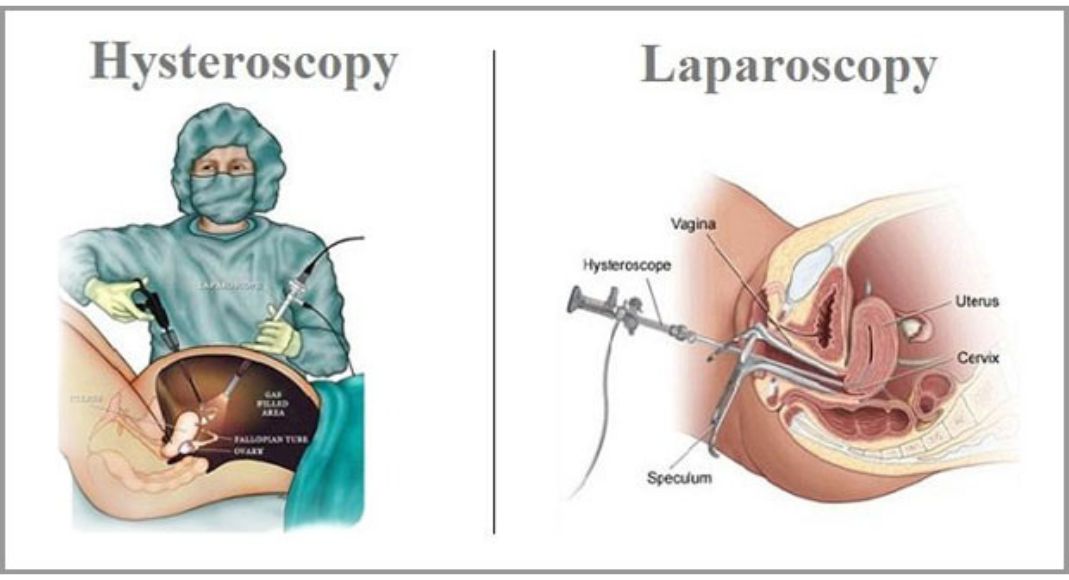Hysteroscopy and laparoscopy are two common minimally invasive surgical procedures used to diagnose and treat various conditions affecting the female reproductive system.
Experience the latest in minimally invasive laparoscopy and hysteroscopy procedures. Our expert team offers safe, effective solutions for women's reproductive health. Achieve faster recovery with advanced treatments at Signora Maternity, Bangalore.
Laparoscopy and hysteroscopy are both minimally invasive surgical procedures used in gynecology for diagnostic and therapeutic purposes. These techniques allow physicians to visualize and treat various conditions within the abdomen, pelvis, and reproductive organs without the need for traditional open surgery. Here’s a brief introduction to each:
Hysteroscopy is a procedure available at signora clinic in Bangalore that allows our expert gynecologist to examine and treat the inside of the uterus. It involves inserting a hysteroscope, a thin tube with a light and camera on the end, through the cervix into the uterus. This enables our expert gynecologist to visualize the uterine cavity and identify any abnormalities, such as polyps, fibroids, or adhesions. Hysteroscopy can also be used to perform certain surgical interventions, such as removing polyps or fibroids, correcting uterine septum, or inserting contraceptive devices like intrauterine devices (IUDs).
Laparoscopy is a surgical procedure available at signora clinic in Bangalore used to examine and treat various conditions in the abdomen and pelvis. It involves making small incisions in the abdominal wall and inserting a laparoscope, a thin tube with a light and camera on the end, to visualize the pelvic organs. Laparoscopy allows our expert gynecologist to assess the condition of the ovaries, fallopian tubes, and uterus, and can be used to diagnose conditions such as endometriosis, ovarian cysts, or pelvic inflammatory disease. It can also be used to perform surgical interventions like removing ovarian cysts, repairing damage to the fallopian tubes, or addressing issues related to infertility.
The benefits of hysteroscopy include its minimally invasive nature, which means smaller incisions are made, resulting in reduced pain and shorter recovery time compared to traditional open surgeries. Additionally, hysteroscopy allows for precise visualization of the uterine cavity, enabling accurate diagnosis and targeted treatment of uterine conditions. It is a fairly common procedure performed on an outpatient basis, usually under local or general anesthesia.
Laparoscopy offers several advantages over traditional open surgery. With smaller incisions, there is less postoperative pain, reduced scarring, and faster recovery time. It also minimizes the risk of complications such as infection and bleeding. Laparoscopic procedures are generally done under general anesthesia, and patients can usually return home on the same day or within a short hospital stay.
Hysteroscopy is an outpatient procedure that does not require any surgical incisions. Initially, the cervical canal is temporarily widened using a series of dilators. Then, a hysteroscope, which is a long, thin, lighted viewing tube, is inserted through the cervix to access the uterus. To improve visibility of the internal structure, saline fluid or carbon dioxide gas is introduced through the hysteroscope, expanding the uterine cavity. Within the hysteroscope, there are narrow channels through which long surgical instruments can be inserted for performing the necessary surgery inside the uterus.
The procedure is typically done with the patient under general anesthesia. A laparoscope, a tube resembling a telescope, is inserted through a small cut around the navel or nearby area. Carbon dioxide gas is then introduced into the abdominal cavity to separate the organs from the cavity wall, facilitating a clear view through the laparoscope and minimizing the risk of harm. Another small incision in the lower abdomen allows for the manipulation of the structures being examined. Fluid is passed through the cervix, uterus, and fallopian tubes to detect any possible obstructions. If an issue is identified, it can be addressed using surgical instruments inserted through 1-2 additional incisions in the lower abdomen. When the procedure is finished, the instruments are removed, the abdomen is deflated, and the incisions are closed with sutures. Certain procedures may not be performed laparoscopically and may require an open incision.
Like any surgical procedure, hysteroscopy and laparoscopy have potential risks and complications. These can include infection, bleeding, damage to surrounding organs or structures, anesthesia-related complications, and blood clots. However, it is important to note that such risks are infrequent and occur in a small percentage of cases. Our expert gynecologist at Signora clinic in Bangalore will discuss these risks with you prior to the procedure and take necessary precautions to minimize them.
Hysteroscopy is a procedure that allows our expert gynecologist to examine the inside of the uterus and diagnose and treat various conditions affecting the uterine cavity. On the other hand, laparoscopy is a minimally invasive surgical procedure that involves making small incisions in the abdomen to insert a thin, lighted instrument called a laparoscope. It allows our expert gynecologist to view the pelvic organs, such as the uterus, fallopian tubes, and ovaries.
Hysteroscopy and laparoscopy are considered minimally invasive procedures that do not have a significant impact on fertility. In fact, these procedures can help diagnose and treat specific conditions that may be causing infertility, such as uterine polyps, fibroids, or blocked fallopian tubes, improving the chances of successful conception.
At our clinic, we prioritize patient comfort and safety throughout the entire treatment. Our experienced team of gynecological surgeons utilizes state-of-the-art equipment and techniques to ensure the best possible outcomes for our patients.
Discover comprehensive women’s healthcare services at Signora Maternity, our premier fertility hospital in Bangalore. From Pap smear and dilation and curettage treatments to high-risk pregnancy care and postnatal support, Signora Maternity offers a range of specialized services. Our expert team provides personalized care for menstrual disorders, fertility issues, repeated abortions, antenatal care and post-menopause concerns. Additionally, we offer HPV vaccination, Mirena intrauterine IUD insertion, and menstrual cup consultations. Trust Signora Maternity for top-notch preconception counseling and female infertility treatments. Experience excellence in maternity care at Signora Maternity, known as the best maternity hospital in Bangalore. Visit us for UTI and PCOD treatments tailored to your needs. Your health and well-being are our priority. Schedule an appointment today.
Visit Our Maternity clinic Today
Name: Signora Maternity and Gynecology Clinic
Address: 396, 1st floor , 8th main, 7th Cross Rd, BTM 2nd Stage, Bengaluru, Karnataka 560079
Contact number: 6362141790
I had my laparoscopy at Signora Maternity, and I couldn’t be happier with the experience. The team was very professional, and the procedure was smooth with minimal discomfort. I was up and about in no time. Highly recommend their services for anyone considering minimally invasive surgery.
I underwent a hysteroscopy procedure at Signora Maternity, and the results exceeded my expectations. The doctors were very thorough in explaining everything, and the recovery was quick and painless. I felt well taken care of throughout the entire process."
I’m so grateful for the team at Signora Maternity for their exceptional care during my laparoscopy. The procedure was explained in detail, and I was supported throughout the entire journey. I am happy with the results and would definitely recommend them.


